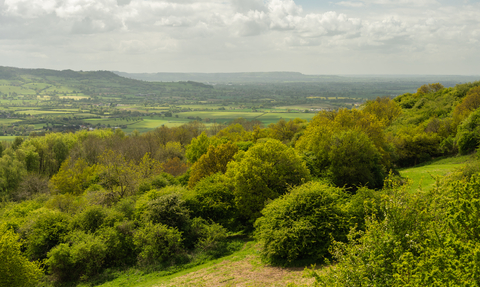
Robinswood Hill by Nathan Millar
Save wildlife in Gloucestershire by contacting your MP
After the 2024 general election, over half of MPs across the country are new to the job. In Gloucestershire, six out of seven MPs are new to their role.
This means that the MPs want to hear from their constituents, and it’s a great time to lobby your MP and share how you feel about wildlife in your local area!
Check out our quick guide on how to lobby your MP for nature by clicking here.
Not sure who your MP is? Check out our map to find out, or use this website.
There are several ways you can lobby your MP. You could:
- Write them a letter or send an email
- Book an in-person meeting with them or attend a constituency surgery
- Contact them on social media
What does your MP care about? Using topics your MP already cares about can make it easier to get them to understand and pay attention to what you want to say. You can find this out by researching their background - what did they do before they became an MP? This may give you an insight into what they care about. You can also look at They Work For You for an understanding of their voting history. If the MP is newly elected, you could look at their website or social media - what do they post about? What issues did they talk about during their general election campaign?
What do you care about? If you are meeting with your MP in person, it is likely that the meeting will not last very long. If you write to them, your communication may also be more effective if it is succinct. It's important to consider the points that you most want to get across to your MP. Make some notes on what the most important topics for you to discuss are. MPs also love hearing personal stories from the local area, so talk about why your points matter from your own experience.
What action do you want them to take? Many MPs will hear concerns from constituents without a suggestion of what action they want their MP to take. It is important to think about how they can properly address your concern, whether that's in Parliament or within your local area. This means that they can take meaningful action, such as writing to their party leader or backing environmental laws, and you can hold them accountable for these actions too.
Ways to contact your MP
Writing to your MP
You can write letters to your MP's constituency address, which can be found here. You will also find their parliamentary email address if you would like to email them. If their constituency address isn't on the webpage, you can also write to their parliamentary office at:
[MP's Name]
House of Commons
London
SW1A 0AA
It may take some time for your MP to respond to you, especially as they have recently been elected and may have a lot of people contacting them.
Here are some things to consider when writing to your MP:
- Remember to add your full postal address, so that the MP can make sure that you are in their constituency.
- Say who you are, clearly explain your concerns and why you are contacting them.
- Provide facts or examples to back up your point.
- Use your personal experience - MPs receive a huge volume of letters and emails, so personalised communication will be more memorable!
- Keep it concise - again, MPs will have to read a lot of letters, so they are more likely to remember information if it is concise.
- Use what the MP cares about to make it personal to them.
- Always ask for a response.
- Ensure you state what action you want to see from them.
In person meetings
To arrange a meeting with your MP, you can contact their constituency office. Many will hold surgeries one day a week, where they will meet with their constituents. It's important to note that most MPs will be busy finding office space and staff at the moment, so this may not be possible until they're set up. Meetings will be about 15 minutes and are typically booked in advance.
Things to consider for an in-person meeting are:
- Give them some information on what you'd like to talk about ahead of time, so that the MP can be informed and discuss the topic with you.
- Prepare for what you are going to say and your main talking points.
- Bring information like facts, maps or data to back up your point.
- Offer your help in addressing your concerns - can you give them further information or follow up with them?
- State what action you want to see them take.
- Send an email or letter after the meeting to thank them for meeting with you and reminding them of what you discussed.
Social media
Some MPs won't use social media much, or it might only be monitored by staff. However, it is a useful way of getting your point across succinctly and quickly. They will take note of what is being said on their social media, especially if lots of their constituents are talking about the same thing. It can also encourage others to take note of what people in their local constituency care about.
You can find the social media accounts of most MPs here.

